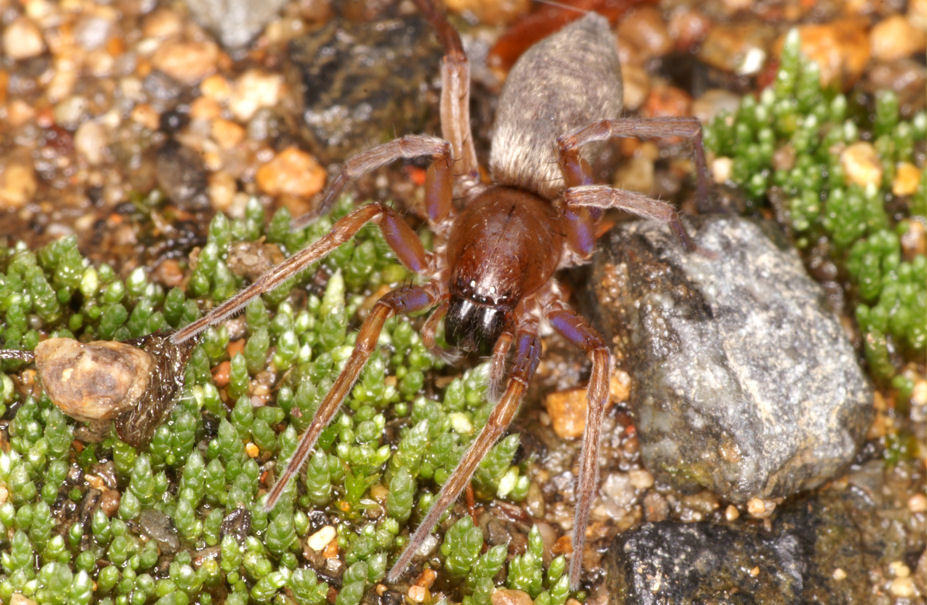
Back<------ Clubiona lutescens

Back<------ Clubiona lutescens
| The spiders are not large and mostly brownish without any clear markings. They are nocturnal hunters and they spent their daytime in a densely woven silk cell that often had two openings. The spiders make their living tubes under stones, loose bark, between moss but also between leaves. | |
Mating takes place in this living tube. There is almost no foreplay when the male approaches the female. The mother guards here eggs and after hatching the young remain in the living tube for some time. 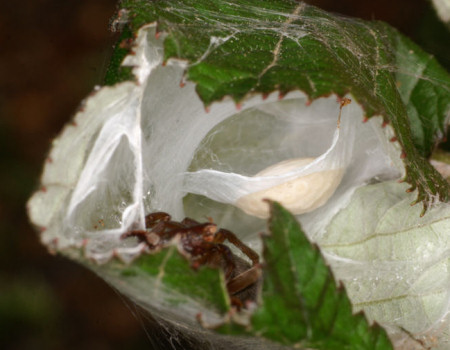 The do not make a web to catch but actively hunt for their prey. They use two tactics for prey capture. The easy way, just wait or like a cat crawling to the prey and jump on it. They can walk on rough or flat surfaces like glass. |
The fourth leg pair are often the longest pair. Their spinners are large.
|
Note the reflection of the flashlight in the two reflecting eyes. ---> These spiders can fly by what is called ballooning.
|
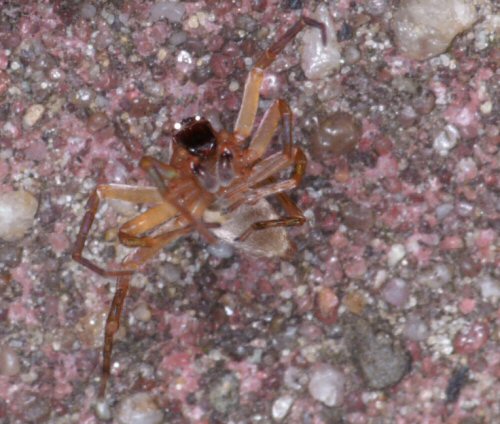 |
Genus Clubiona
Nineteen species are represented by this genus in Europe. Their abdomen is usually dull brownish or reddish gray. They hunt at night and spend the day in a cell of silk that can be found under stones and bark. These spiders are between 5 and 12 mm long.
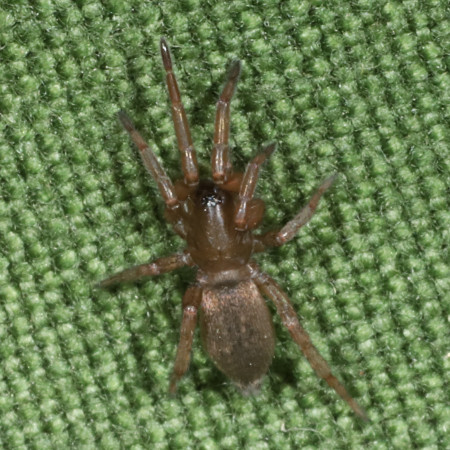 |
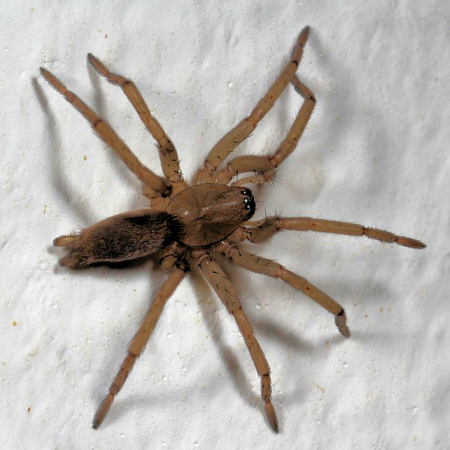 |
| Clubiona brevipes | Clubiona brevipes |
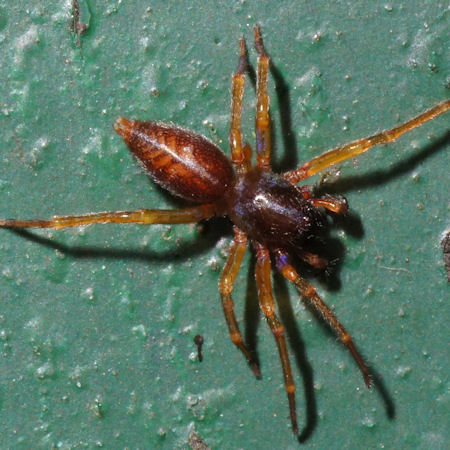 |
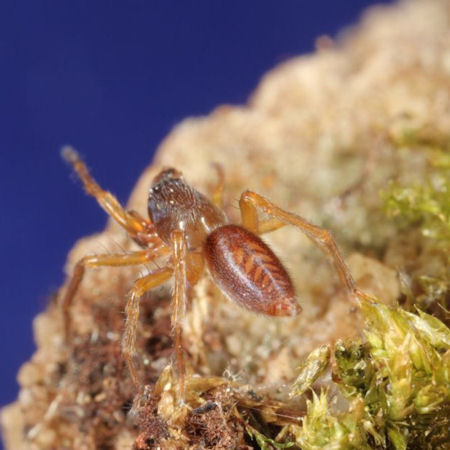 |
| Clubiona comta | Clubiona comta |
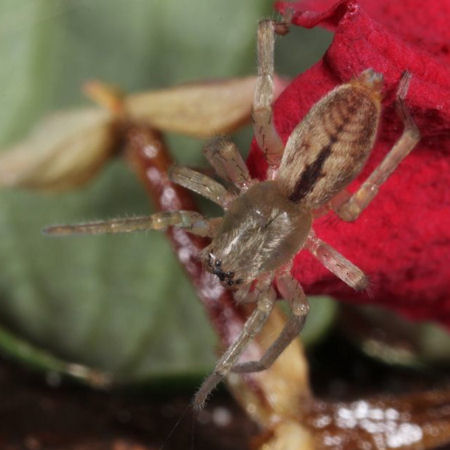 |
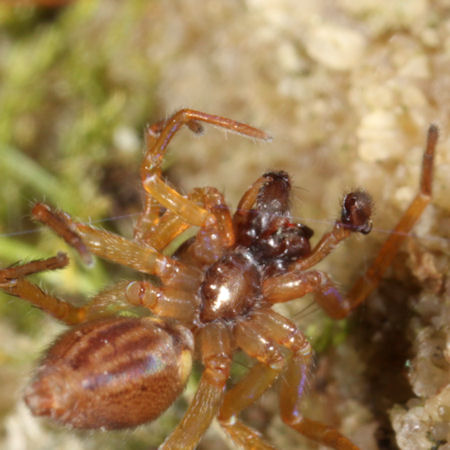 |
| Clubiona comta juvenile | Clubiona comta male underside |
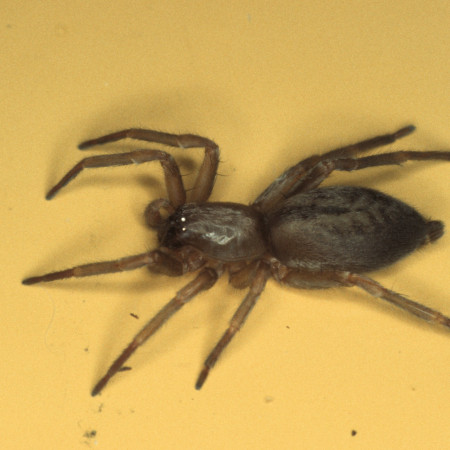 |
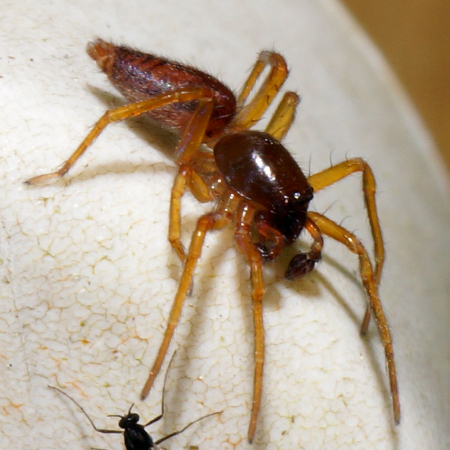 |
| Clubiona corticalis male | Clubiona corticalis male (photo Hans Jonkman) |
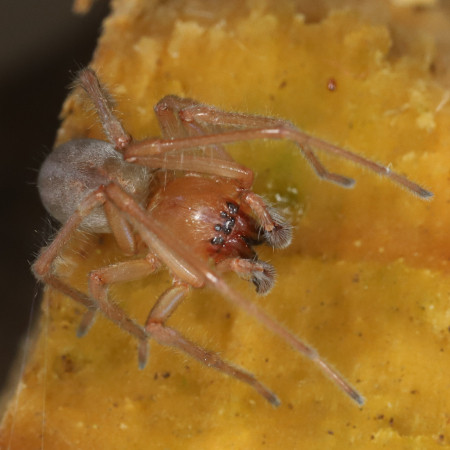 |
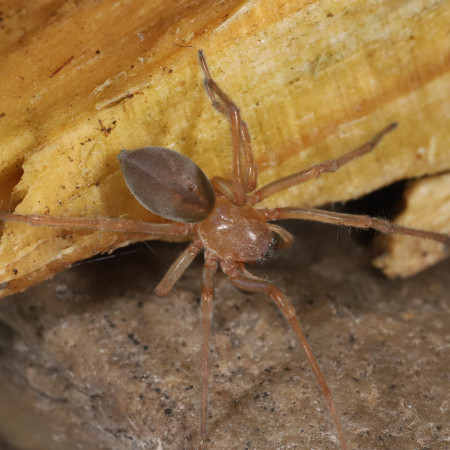 |
| Clubiona diversa | Clubiona diversa |
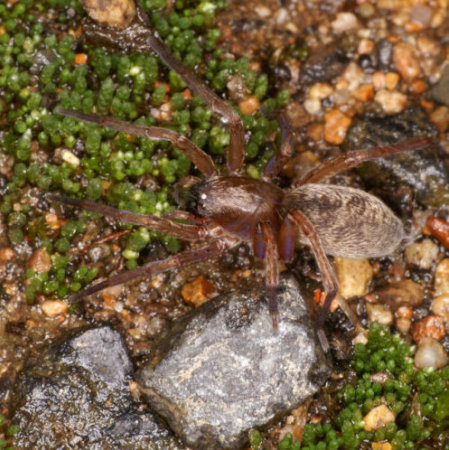 |
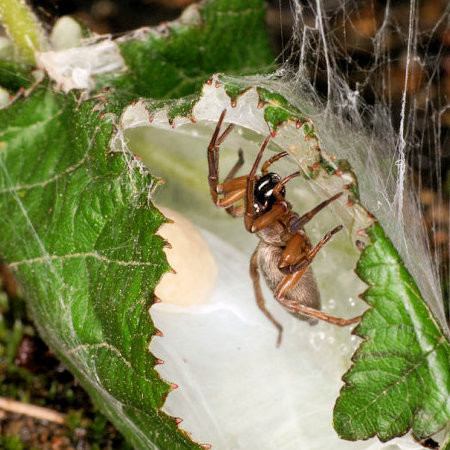 |
| Clubiona lutescens | Clubiona lutescens with egg-sac |
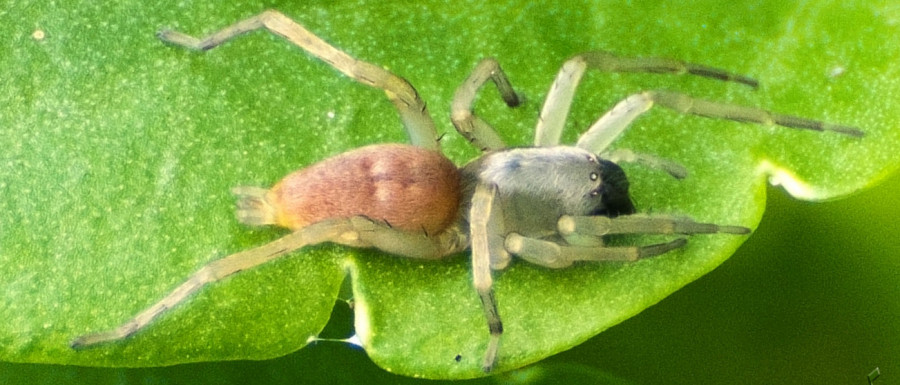 |
|
| Clubiona pallidula Picture by Frans Hoogstraten | |
|
|
|
|
Clubiona stagnatilis female |
Clubiona stagnatilis female |
|
|
|
|
Clubiona stagnatilis female with younsters |
Clubiona stagnatilis male |
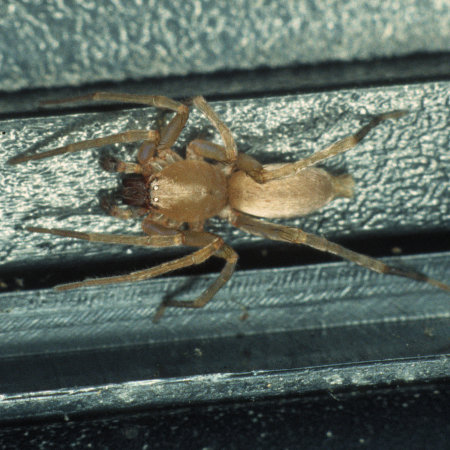 |
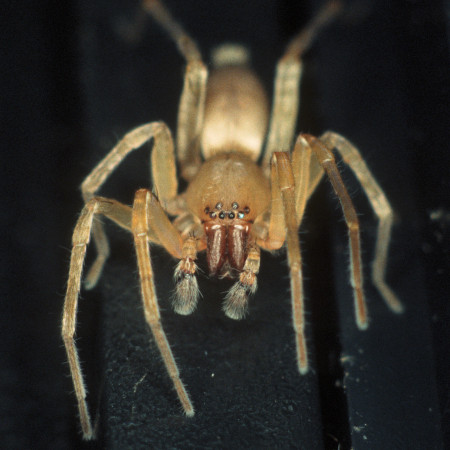 |
| Clubiona terrestris/trivialis male | Clubiona terrestris/trivialis male |
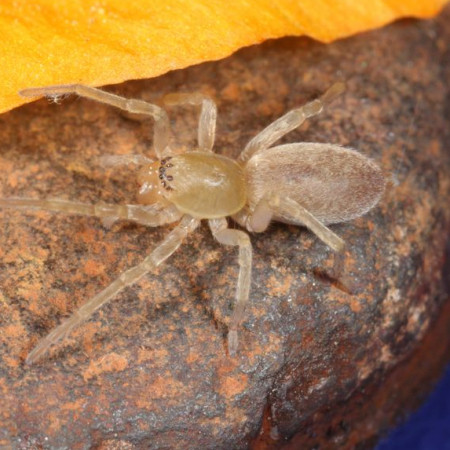 |
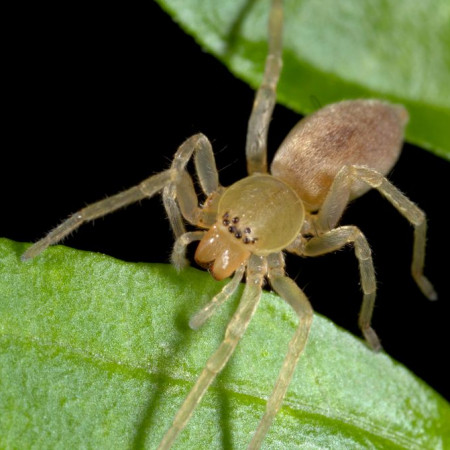 |
| Clubiona trivialis | Clubiona trivialis |
Ed Nieuwenhuys, 13 feb 2023
7 jun 2020, 2 jan 2017, 6 juli 2015, 31 april 2010, 1 maart 2003